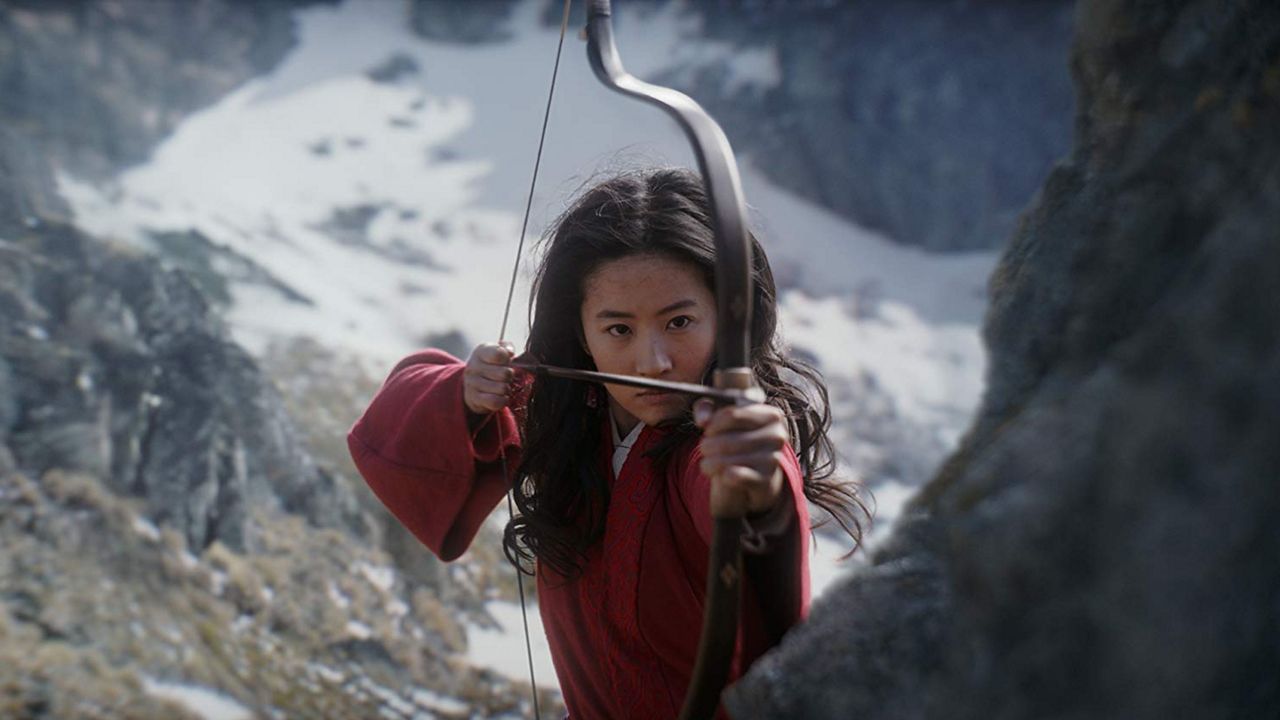INTERNATIONAL — Disney’s new live-action remake of the beloved animated film “Mulan” is facing renewed backlash for filming portions of the movie in China’s Xinjiang province, where the Chinese government is accused of human rights abuses against the country’s Uighur Muslims and other ethnic minorities.
The criticism began after several social media users pointed out that the film’s credits thanked numerous government agencies in Xinjiang, including the Chinese Communist Party Xinjiang Uyghur Autonomous Region Committee and the Bureau of Public Security in Turpan, among several others.
The former of the two is the agency responsible for spreading propaganda against Uighurs in the region.
The film, which was released to Disney+ on Sept. 4, was reportedly filmed across dozens of locations in China. Earlier this year, Architectural Digest reported that “Mulan” production designer Grant Major and his team spent “months in and around the northwest province of Xinjiang” doing research for the film.
Uighurs and ethnic Turkic minorities in China have been subject to an unprecedented crackdown since 2017. A study from the Human Rights Watch in 2018 found a "mass, systematic campaign of human rights violations against Turkic Muslims in Xinjiang in northwestern China."
China has long suspected the Uighurs, who are mostly Muslim, of harboring separatist tendencies because of their distinct culture, language and religion. In a lengthy press conference in August, the Chinese ambassador to the U.K. played graphic videos of terrorist attacks in Xinjiang to show that the Chinese government’s measures there are “necessary and important.”
Ambassador Liu Xiaoming also called allegations about rights abuses in Xinjiang made in Western media “lies of the century,” and denied that nearly 1 million Uighurs have been detained in Xinjiang.
Moreover, a recent investigation by the AP found that the Chinese government is systematically forcing birth control on Uighurs and other Muslims in an apparent effort to reduce their population. The report found that authorities regularly subject minority women to pregnancy checks and force intrauterine devices, sterilization and abortion on hundreds of thousands. While scores have been thrown in detention camps for alleged “religious extremism,” many others were sent to the camps simply for having too many children.
In July, the Trump administration imposed sanctions on three senior Chinese Communist Party officials for alleged human rights abuses targeting Uighurs, ethnic Kazakhs and other minorities in Xinjiang, including mass detentions and forced population control.
The questionable choice of filming locations is only the latest scandal to plague the “Mulan” remake.
Before the movie was even released, lead actress Liu Yifei came under fire after posts she reportedly made in support of Hong Kong police from August 2019 resurfaced on social media.
A translated portion of a post the social media site Weibo read, "I also support Hong Kong police. You can beat me up now,” according to a report from The Guardian.
Hong Kong has been the site of massive protests since summer 2019, when demonstrators came out against a proposed bill that would allow mainland China to extradite criminal suspects from Hong Kong under certain circumstances.
While the bill was withdrawn in September of last year, protests have continued in the region as calls for complete democracy and investigations into police actions rise.
The renewed focus on the actress’ previous comments caused the hashtag #BoycottMulan to briefly trend on Twitter.
Yifei has not directly commented on her alleged previous posts, but did call the Hong Kong protests “a very sensitive situation” in a February 2020 interview with The Hollywood Reporter.
Still, the controversies didn’t stop “Mulan” from giving Disney’s streaming service a significant bump in revenue. According to a report from Yahoo Finance and Sensor Tower, an app research firm, Disney+ downloads “spiked 68% from Friday, Sept. 4 through Sunday, Sept. 6, compared to one weekend prior.” Consumer spending in the app also increased 193% over the same period, the report continued.
Disney+ customers could buy “Mulan” for a one-time fee of $29.99, on top of the streaming service’s monthly fees.
Spectrum News has reached out to Disney for comment.
The Associated Press contributed to this report.








